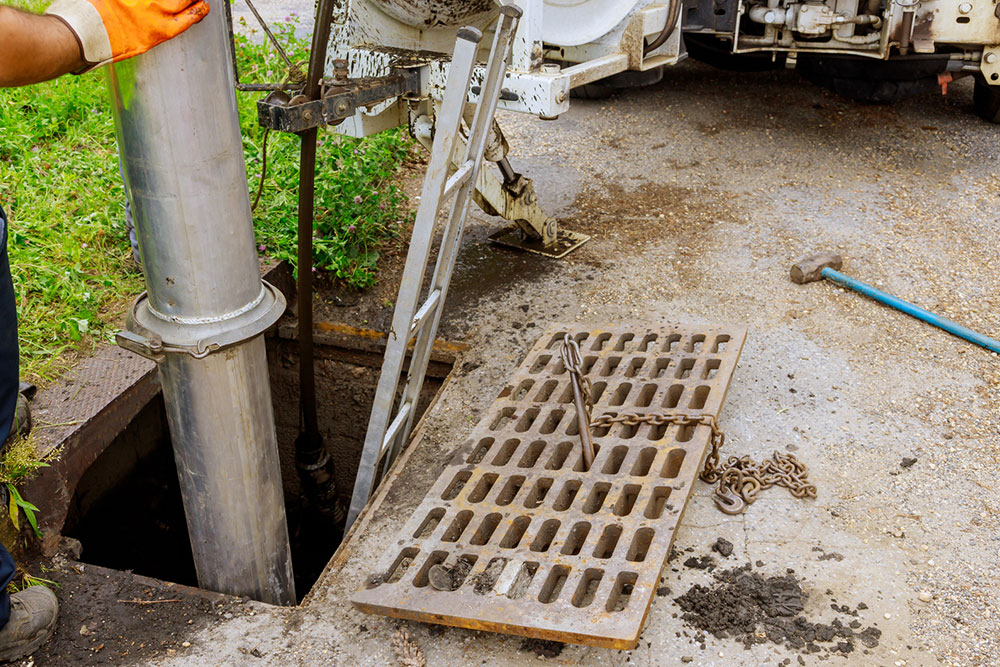Sewer Line Replacement – Types, Costs, and Tips
Sewer lines can develop blockages, leaks, and pipe damage over time. If left unchecked, a damaged or broken sewage system can be a public health hazard and also cause damage to the property. While sometimes, these issues can be fixed with repairs, other times, they may be signs that the sewer line needs to be replaced. But before replacing sewer lines, here is what one should expect in terms of the process and costs:
Types of replacement and costs
1. Traditional sewer replacement
Here, a ditch needs to be dug along the pipeline to be replaced; then, it is replaced with a new pipe.

2. Trenchless sewer replacement
This method doesn’t require a ditch to be dug and is actually much faster than the traditional method. It is also less expensive and needs less manual labor, so it’s a commonly used method today.
- Pipe bursting: In this method, a bursting head, which is a type of drill, is used to break open the sewer line that needs to be repaired. Small holes are dug at the pipe’s ends to get to the sewer line. While destroying the old sewer line, the new one will be set in place, and the residual materials will be discarded from the area. The process is usually very quick and doesn’t require excessive manual effort. But if the procedure isn’t carried out carefully, there’s a risk of damage to the surrounding areas. The average cost of pipe bursting is $60 to $200 per foot, which may add up to anywhere from $3,500 to $20,000, depending on the scope of the work.
- Sliplining: Here, a smaller pipe is installed into the larger pipe that needs to be replaced. Then, the gap between the two pipes is filled using grout. The process is quite quick and easy, so it doesn’t involve much downtime. It also helps ensure that there aren’t any maintenance issues for a long time. However, the method cannot be used for smaller pipes. It also reduces water flow significantly. Sliplining may cost anywhere from $80 to $250 per linear foot.
- Cured-in-place pipe lining: Cured-in-place pipe or CIPP lining involves installing a fiberglass or polyester line inside a damaged pipe that needs replacement. A manhole or excavation point is needed to carry out the process, and the new sewage line is installed with the help of air or water pressure. However, CIPP takes one day to cure, and it cannot be used for all sewer line issues. Typically, CIPP costs between $80 and $250 per foot, so its estimated cost for sewer line replacement is roughly up to $9,000, depending on the project’s scale.
Tips for replacing a sewer line
1. Consult a professional
As there are many different methods for replacing a sewer line, selecting one method can be confusing. So, the best option is to discuss with a professional the method that would be most effective, given the scope of work, budget, and other concerns, such as the cost to replace sewer lines under a slab. One should also look up the different methods and their pros and cons to know whether the method the professional is suggesting is feasible or not.
2. Set a budget
The choice of sewer line replacement method largely depends on the budget, so it is very important to have an estimate of the sewer line replacement cost one can afford. When setting a budget, it is better to consider all factors, including the number of people or households contributing to the procedure and the amount of work involved. It helps to have a buffer for additional labor costs and any other unexpected overhead costs.
3. Remove obstacles
One should remove obstructions like furniture pieces, vehicles, and outdoor plants beforehand because these may come in the way while replacing sewer lines and lead to property damage in some cases. These obstacles can also cause inconvenience to those who are replacing the sewer line.
4. Be prepared for landscaping
If one is going for the traditional method of sewer line replacement, one should be prepared for landscaping, considering the heavy machinery digs deep. The landscaping process is also quite expensive, so it is best to be financially prepared for the overall expenses.
5. Find the right professionals
Sewer line replacement is quite an important task, so one should always hire an experienced and skilled agency to carry it out. It’s important to check out reviews of the agency and speak to others in the neighborhood for feedback on their proficiency.

